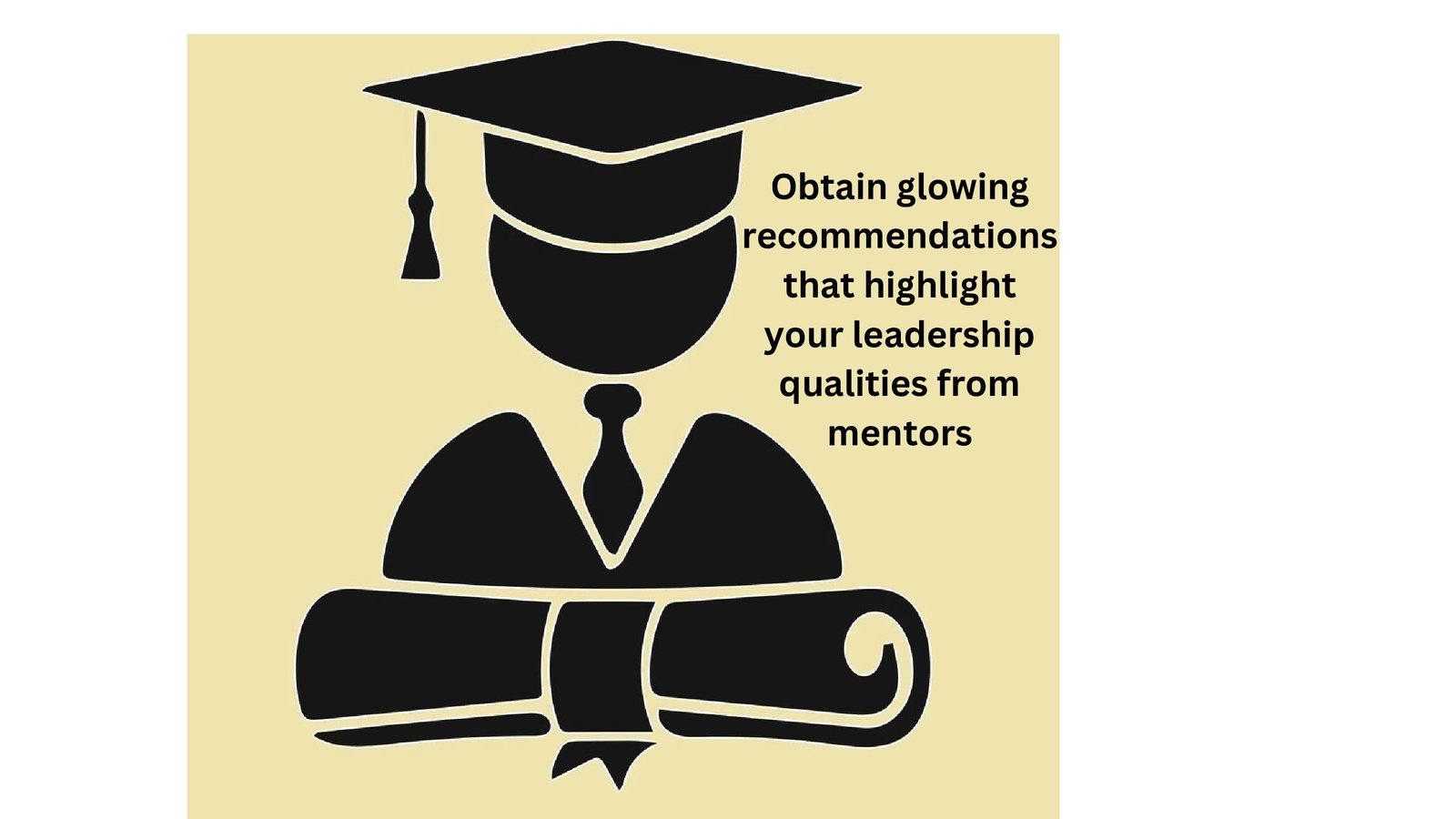Leadership scholarships
Leadership scholarships are monetary prizes bestowed upon those who have shown remarkable leadership abilities, accomplishments, and promise. The purpose of these scholarships is to honor and assist students who demonstrate exceptional leadership abilities in a variety of contexts. You can look at opportunities provided by colleges, businesses, foundations, and governmental bodies to find leadership scholarships.
International students who demonstrate outstanding leadership abilities and a dedication to improving their communities or academic subjects are frequently granted leadership scholarships. These scholarships provide financial aid, networking opportunities, and mentorship with the goal of fostering and developing future leaders. Several renowned leadership scholarships are available to international students.

How to get Leadership scholarship for international student
Being awarded a leadership scholarship as an overseas student necessitates planning ahead and taking a calculated risk. Here is a detailed guide to assist you in navigating the procedure:
Assemble a Portfolio of Leadership:
A powerful strategy to highlight your abilities, experiences, and accomplishments in leadership positions is to compile a portfolio of your leadership work. A well-curated leadership portfolio may make a big impact when applying for jobs, scholarships, or college admissions. Create a portfolio that showcases your accomplishments, roles, and responsibilities from your leadership experiences. Give specific instances to illustrate your influence.
Compose a Strong Personal Statement:
A strong personal statement provides insight into who you are, your experiences, and your objectives. Writing a strong personal statement is essential whether you’re applying for a job, education, or scholarship. Write a compelling personal essay that highlights your aspirations, leadership journey, and how the scholarship will further your growth.
Describe your motivation for being a passionate leader and how you want to use your abilities to change the world.
Obtain Powerful Letters of Endorsement:
Obtaining strong letters of recommendation is a great advantage when applying for jobs, school, or professional prospects. These letters shed light on your personality, accomplishments, and potential for leadership. Ask instructors, employers, or local leaders who can attest to your leadership qualities for letters of recommendation. Make sure they give precise instances of your influence.
Display Cultural Awareness:
Displaying cultural awareness is essential in various settings of leadership scholarships, whether you’re applying for scholarships, seeking employment, or interacting in diverse environments. Cultural awareness involves understanding, respecting, and appreciating different cultural perspectives, stress your adaptability to different work contexts and your cultural sensitivity. Talk about any experiences you’ve had that show you can adjust to different cultures.

Research Scholarship Opportunities:
Researching scholarship opportunities requires investigating multiple channels to locate programs that correspond with your academic and personal goals. Here is a detailed guide to assist you with this procedure:
- Make use of scholarship search sites like College Board’s Scholarship Search, Fastweb, and Scholarship.com.
- Decide on your area of study, degree of education, and desired academic outcomes. Establish any personal requirements, such eligibility or location.
- Conduct an online search by going through reliable databases of scholarships, college websites, and government-sponsored initiatives that cater especially to overseas students.
- International Student Offices: For information about scholarships open to international students, get in touch with the international student affairs office at your university.
- Particular Organizations: Look for scholarships provided by foundations, NGOs, or international companies with an emphasis on leadership development.

Understand Eligibility Criteria:
- Leadership Attributes: Find out whatever particular leadership traits or background the scholarship provider is looking for.
- Academic Requirements: Find out if there are any minimal GPA requirements or prerequisites.
- Citizenship and residency: Verify that you fulfill the requirements for candidates from outside the country.

Develop Your Leadership Profile: Finding, fostering, and presenting your leadership abilities and experiences are all part of building a powerful leadership profile. This is a step-by-step strategy to assist you in developing a strong leadership profile:
- Create a Leadership Portfolio to highlight your responsibilities, accomplishments, and leadership experiences. Emphasize any projects in which you assumed the lead.
- Take Part in Leadership Activities: Get involved in volunteer work, clubs, or organizations that promote leadership.
- Protective Advices: Obtain glowing recommendations that highlight your leadership qualities from mentors, instructors, or employers.
- Recognize Different Leadership Styles: Become acquainted with a range of leadership styles, such as transformational, servant, and democratic. Find the style or styles that speak to you and your ideals.
- Record Your Experiences: Make a list of the situations in which you showed leadership. Incorporate both official positions (like team leader in a club or at work) and informal ones (like project initiator or conflict resolution).
- Quantify Your Success: Try to put your leadership accomplishments into numbers. Emphasize particular results, enhancements, or effects that arise from your leadership activities.
- Seek Feedback: Get input on your leadership style from coworkers, mentors, or superiors. Learn what works for you and what needs improvement.

Craft a Compelling Application: Putting oneself in the best possible light and persuading the assessors of your suitability are key components of creating a persuasive application. Here’s a broad guide to help you write an application that will stand out, whether you’re applying for a job, scholarship, or any other kind of opportunity:
- Essay or Personal Statement: Describe your leadership experiences and journey, as well as how you intend to use the scholarship to hone your leadership abilities.
- Tailor Applications: Make sure each application reflects the goals and core principles of the scholarship organization.
- Stress Cultural Understanding: Draw attention to your experiences as a cross-cultural leader and your global perspective.
- Write a Persuasive Cover Letter: Don’t limit your cover letter to a CV summary; instead, think beyond the box. Indicate in brief why you are interested in the position, how your ambitions fit with the organization’s, and what special value you may offer.
- Customize Your Application: Make sure your application is tailored to the particular opportunity. Steer clear of generalizations and demonstrate your research.
- Emphasize Relevant Experience: Draw attention to events that have a direct bearing on the opening. Give concrete instances of how your previous positions helped you succeed.
- Showcase Achievements: Emphasize your successes and use data or metrics to gauge your influence. Pay attention to the ways you made a difference or accomplished particular goals.

Prepare Supporting Documents: It’s crucial to put up a thorough and orderly collection of supporting materials for applications so that it will bolster your candidacy. Depending on the type of application, you will need different documents, but as a general reference, here is what you should have:
- Academic Transcripts: Verify that your records fulfill the requirements for the scholarship.
- Letters of Recommendation: Gather powerful testimonials that emphasize your leadership abilities in particular.
- Language Proficiency Tests: Take language proficiency tests (such the TOEFL or IELTS) if necessary, and turn in your results as needed.

Submit a Strong Application: A strategic approach, meticulous planning, and attention to detail are necessary for submitting a great application. This thorough guide will assist you in crafting an application that will stand out, whether you’re applying for a job, scholarship, or any other kind of opportunity:
- On-time Submission: Make sure that all materials are turned in ahead of schedule.
- Proofread and Edit: Check the accuracy, coherence, and clarity of your application documents.
- Seek Feedback: To make the application better, get suggestions from mentors or advisers.
- Recognize the application’s particular requirements and expectations. Make sure your application reflects the abilities and attributes they are seeking.
- Briefly describe your training, professional background, abilities, and any noteworthy accomplishments,
to show your effect, use action verbs and, if possible, numbers to describe your accomplishments. - Read the application instructions very carefully. Send in all necessary paperwork and data.
- Make sure you respond to any specific queries that may arise.
Prepare for Interviews (if applicable)
In order to successfully present yourself and improve your chances of success, it is imperative that you prepare for interviews. Here is a thorough guide to assist you in getting ready for interviews:
- Study and Practice: Learn about the scholarship provider and get comfortable talking about your goals and experiences as a leader.
- Emphasize Cultural Adaptability: Highlight the ways in which your global experience has shaped your leadership abilities.
- Get Ready for Frequently Asked Questions: Think through and rehearse answers to frequently asked interview questions. These can entail inquiries concerning your history, encounters, assets, shortcomings, and level of curiosity in the position.
- Emphasize Your Successes: Prepare to talk about certain experiences and accomplishments that highlight your abilities and credentials. To organize your responses, use the STAR approach (Situation, Task, Action, Result).
- Understand Your Resume Have the confidence to discuss your training, professional background, and extracurricular involvement. Make a link between your experiences and the abilities and attributes to the company.
- Investigate Industry Trends: Keep up with the most recent advancements and trends in the sector or industry that are pertinent to the opportunity. This demonstrates your dedication to and enthusiasm for remaining current.
- Prepare Your queries: Prepare some intelligent queries to pose to the interviewer. This helps you determine whether the role or opportunity is a good fit for you by demonstrating your sincere interest in it.
- Practice Behavioral inquiries: Get comfortable responding to inquiries about your past conduct that gauge how you handled particular circumstances. Arrange your answers using the STAR technique.
Follow-Up and Persistence: Persistence and follow-up are crucial components of any opportunity pursuit, including the job search and application process. Here’s how to follow up and show perseverance in an efficient manner:
- Thank You Notes: Following interviews or other encounters, express gratitude to the scholarship committee.
- Request comments: If you don’t get the job, ask for comments on how you can do better and think about applying again later.
- Investigate Other Opportunities: Seek out alternative scholarship programs that could fit your goals an profile.
- Make a Schedule: Put the scholarship or opportunity’s notification deadline on your calendar if it has one. Know when you should realistically anticipate a response.
- Hold on patiently: Give the institution or group the time it needs to examine applications and make a decision. During this stage, patience is essential.
- Kindly Send a Reminder Email: Should the deadline have elapsed and you have not heard anything new, write a courteous follow-up email. Reiterate how excited you are about the opportunity, express your continuous interest, and find out how the selection process is going.

